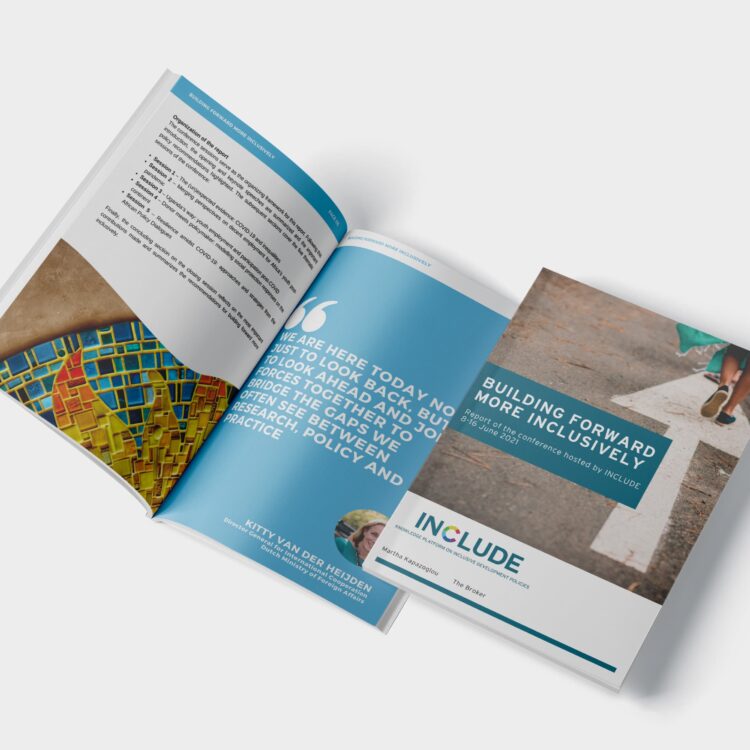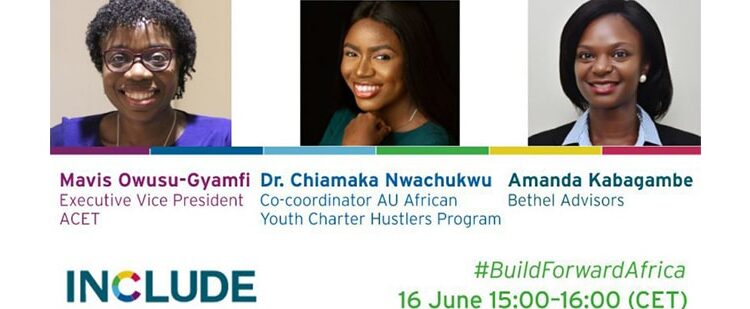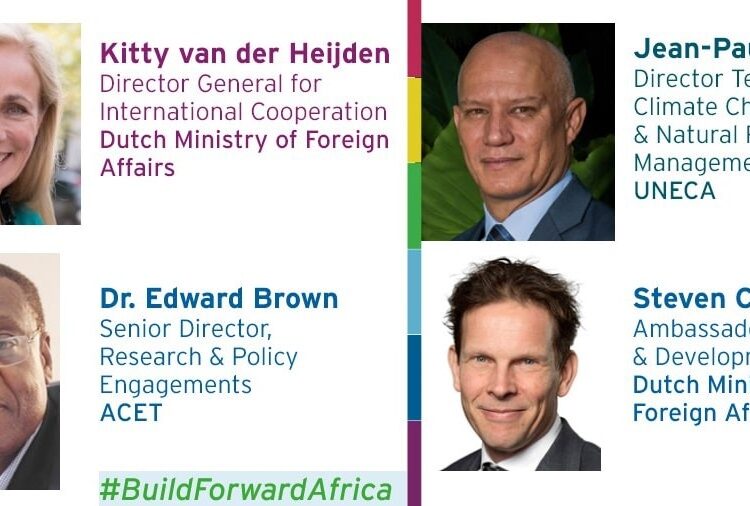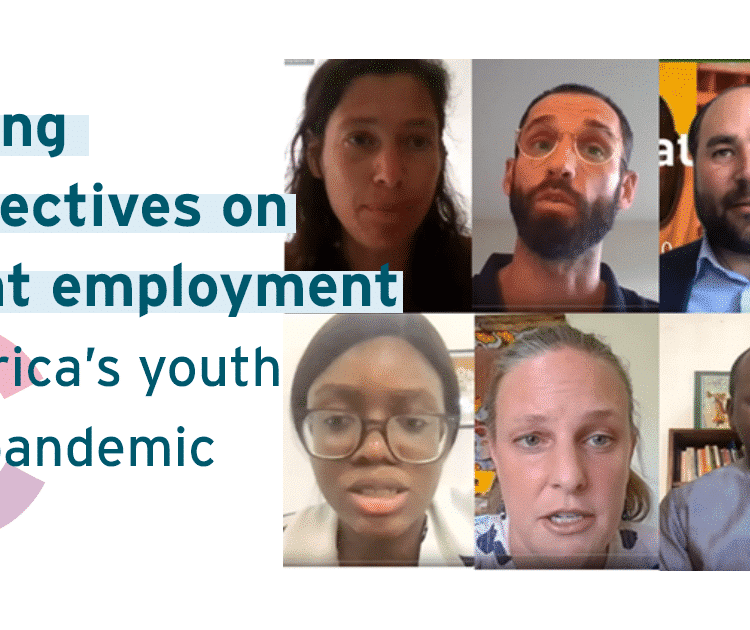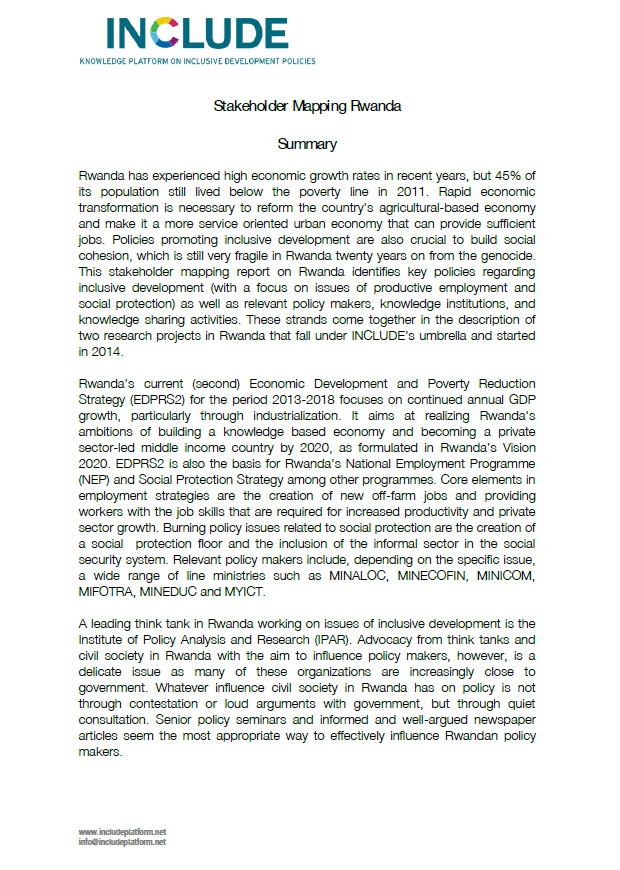
Rwanda has experienced high economic growth rates in recent years, but 45% of its population still lived below the poverty line in 2011. Rapid economic transformation is necessary to reform the country’s agricultural-based economy and make it a more service oriented urban economy that can provide sufficient jobs. Policies promoting inclusive development are also crucial to build social cohesion, which is still very fragile in Rwanda twenty years on from the genocide. This stakeholder mapping report on Rwanda identifies key policies regarding inclusive development (with a focus on issues of productive employment and social protection) as well as relevant policy makers, knowledge institutions, and knowledge sharing activities. These strands come together in the description of two research projects in Rwanda that fall under INCLUDE’s umbrella and started in 2014.

